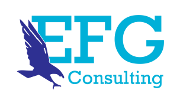UAE had recorded an fiscal surplus in 2022, with a 31.8 per cent y-o-y growth revenues
Abu Dhabi: The UAE Cabinet, on Monday, approved the federal 2024-2026 budget, totalling Dh192 billion. His Highness Sheikh Mohammed bin Rashid Al Maktoum, Vice President, Prime Minister of the UAE and Ruler of Dubai, chaired the UAE Cabinet meeting at Qasr Al Watan, Abu Dhabi.
Sheikh Mohammed said, “The investment in social development and benefits represents 42 per cent of the budget, followed by government affairs, at 39 per cent. The rest of the budget was distributed to investments in infrastructure and economic resources as well as financial assets and investments with other federal expenses.”
The Cabinet also approved the Federal General Budget for 2024 with estimated expenditures of Dh64.06 billion and estimated revenues of Dh65.78 billion. Official estimates suggest that expenditures in the fiscal year 2024 will reach 1.6 per cent with a growth rate of 3.3 per cent in revenues, compared to the 2023 fiscal year.
Social development and benefits investments represent a large proportion of the UAE Federal Budget 2024 at 42 per cent, followed by government affairs with 39 per cent of the budget.
The rest of the budget was distributed to the infrastructure and economic resources by 4 per cent, and the financial assets and investments by 4 per cent. Other federal expenses amount to 11 per cent of the budget.
Financial Stability Council
The UAE Government issued a federal decree-law regarding establishing the Financial Stability Council. The Council aims to promote and protect financial stability at the national level and strengthen the financial system’s role in promoting sustainable economic development.
Sheikh Mohammed said, “The UAE Government issued a decree on constituting the board of directors of the Financial Stability Council, headed by Sheikh Mansour bin Zayed.”
UAE Drug Corporation
During the meeting, the Cabinet also approved a federal decree-law regarding establishing the UAE Drug Corporation. An independent federal corporation that regulates and manages medical products circulation in the country.
The UAE Drug Corporation aims to promote public health levels and strengthen the position of the UAE as a global hub for pharmaceutical and medical industries, enhancing research and development in the pharmaceutical and medical products sector and attracting investments in the research and pharmaceutical industries.
Industrial fees
A decision to reduce the fees of the Ministry of Human Resources and Emiratisation services for industrial companies registered in the National In-Country Value (ICV) Programme was also approved.
Now, a company will be classified as category one if it has a higher rating than 60 per cent in the National In-Country Value (ICV) Programme after fulfilling all the obligations mentioned in the federal decree regarding the Regulation of Employment Relationship and its amendments in addition to committing to the objectives of Emiratization and demographic diversity.
The Cabinet adopted amendments to the fees for industrial property services the Ministry of Economy provided. The amendments included a 50 per cent reduction of fees for all SMEs and academic institutions services, which aim to attract SMEs and help promote their growth and expansion.
Other decisions
The Cabinet also approved the Digital Government Service Policy, which aims to measure the level of services and ensure its efficiency. A policy to classify Urban and Rural areas in the country was also approved.
The Prime Minister said, “During the meeting, we approved the restructuring of the Board of Directors of the UAE Space Agency, headed by Sarah Al Amiri.”
The Cabinet approved the executive regulation of the genetic fingerprint in the country. Also, it approved the executive regulations of the ‘Federal Decree-Law No. 41 of 2022 on Civil Personal Status for Non-Muslims’ to regulate family matters related to marriage, divorce, inheritance and child custody.
The UAE Cabinet approved the executive regulation of the Federal Decree-Law No. 6 of 2022 on cooperatives. Regulations include specifying the conditions of forming the cooperatives, allowing non-citizens to obtain memberships, establishing the boards of directors, voting, listing and trading in financial markets, and other provisions.
The Cabinet adopted amending the Executive Regulation of Federal Law No. 7 of 2017 on Excise Tax.
The Cabinet approved several international agreements with several countries, including Austria, Türkiye, Tanzania, Kenya, Barbados, Palau, and Argentina.
The UAE Cabinet approved the establishment of the UAE embassy in the Bolivarian Republic of Venezuela in the city of Caracas and Santo Domingo, the capital of the Dominican Republic.
SOURCE&CREDITS: gulfnews.com

